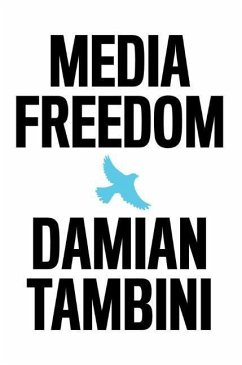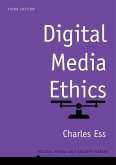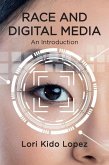The contentious role of social media in recent elections and referendums has brought to the fore once again the fundamental question of media freedom and the extent to which, and the way in which, the media should be regulated in a modern democratic society. This book surveys the history of media in the US, the UK and Europe in order to develop a new theory of media freedom that is capable of resolving current controversies about how best to regulate the media, including the internet and social media.
Tambini argues that democratic regulation of the media must build upon - and learn from - the long history of accommodation between the press, broadcasting, the state and corporate power. By attending to this history, we can see that media freedom is not absolute but rather conditional, taking the form of a social contract of privileges and connected duties. Tambini develops this social contract account of media freedom and applies it to different media sectors, from the press and broadcasting to the internet and social media. Above all, he argues for a renewed role for international human rights law standards in media governance, and an end to American exceptionalism.
Written for students, scholars, policymakers and media professionals, this wide-ranging book will be of interest to everyone concerned about the role of the media in our societies and about the health of our democracies.
Hinweis: Dieser Artikel kann nur an eine deutsche Lieferadresse ausgeliefert werden.
Tambini argues that democratic regulation of the media must build upon - and learn from - the long history of accommodation between the press, broadcasting, the state and corporate power. By attending to this history, we can see that media freedom is not absolute but rather conditional, taking the form of a social contract of privileges and connected duties. Tambini develops this social contract account of media freedom and applies it to different media sectors, from the press and broadcasting to the internet and social media. Above all, he argues for a renewed role for international human rights law standards in media governance, and an end to American exceptionalism.
Written for students, scholars, policymakers and media professionals, this wide-ranging book will be of interest to everyone concerned about the role of the media in our societies and about the health of our democracies.
Hinweis: Dieser Artikel kann nur an eine deutsche Lieferadresse ausgeliefert werden.
'The battles over media freedom are as crucial now as at any point in the past 300 years. This is a comprehensive and compelling guide to the arguments we need to have by one of the most thoughtful scholars in the field... it's a terrific book.'
Alan Rusbridger: Editor of the Guardian 1995-2015; Member: Facebook Oversight Board, Chair: Reuters Journalism Programme, Oxford University
'Damian Tambini has provided us with a set of essential democratic theories and analytical tools to confront the structural crises afflicting our media institutions today. Vividly argued and beautifully written, this book is packed with key insights, inspiring readers with the precious knowledge that building a better media system is not only possible, it's within our reach.'
Victor Pickard, Annenberg School for Communication, University of Pennsylvania "This is a very well-researched, inspiring, thought-provoking and well-written work. ... Tambini makes an original contribution to medialaw theory, thus establishing himself on a par with the great theoreticians of free speech and media freedom. Legal researchers and practitioners will benefit hugely from this fresh perspective informed by empirical, historical and political research."
Journal of Media Law
Alan Rusbridger: Editor of the Guardian 1995-2015; Member: Facebook Oversight Board, Chair: Reuters Journalism Programme, Oxford University
'Damian Tambini has provided us with a set of essential democratic theories and analytical tools to confront the structural crises afflicting our media institutions today. Vividly argued and beautifully written, this book is packed with key insights, inspiring readers with the precious knowledge that building a better media system is not only possible, it's within our reach.'
Victor Pickard, Annenberg School for Communication, University of Pennsylvania "This is a very well-researched, inspiring, thought-provoking and well-written work. ... Tambini makes an original contribution to medialaw theory, thus establishing himself on a par with the great theoreticians of free speech and media freedom. Legal researchers and practitioners will benefit hugely from this fresh perspective informed by empirical, historical and political research."
Journal of Media Law








